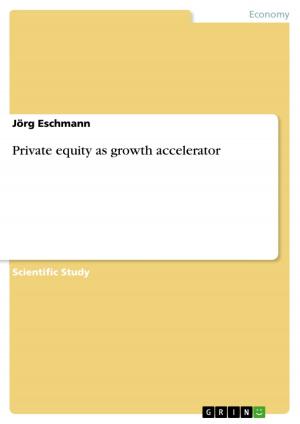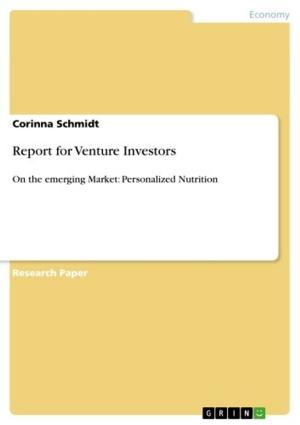How many mutations are required to produce a human cancer cell?
Assessment of theoretical models and their experimental support
Nonfiction, Science & Nature, Science, Biological Sciences, Biology| Author: | Pascal Kaufmann | ISBN: | 9783640852963 |
| Publisher: | GRIN Publishing | Publication: | March 8, 2011 |
| Imprint: | GRIN Publishing | Language: | English |
| Author: | Pascal Kaufmann |
| ISBN: | 9783640852963 |
| Publisher: | GRIN Publishing |
| Publication: | March 8, 2011 |
| Imprint: | GRIN Publishing |
| Language: | English |
Bachelor Thesis from the year 2011 in the subject Biology - General, Basics, University of Cambridge, language: English, abstract: The widespread occurance of cancer and its apparent lack of a cause has led to a plethora of myths spanning from a 'cancer personality' in the 1970's to mobile phones today. The dissertation introduces some of the theoretical principles of cancer which lifts the veil on the mysteries surrounding its causes. The central issue addressed is whether genetic instability above the background level is necessary to account for the levels of cancer seen. In doing so, it touches on the idea that we are all born with mutations - from the very first division at the embryonic stage we begin acquiring them. This occurs even in a perfect environment without mutagens or any environmental stressors. The common conception, of the cells working together for a common goal is reversed. The body can be viewed as a vast community of selfish cells which are constantly competing for resources in a process analogous to Darwinian natural selection. Evolution at the organism level has resulted in a comprehensive disciplinary system to keep the masses in check. Any individual which hints at crossing out of line is sentenced to the biochemical equivalent of imprisonment or the death sentence. However despite the organism's iron tight grip on the individual cell, it is clear that we all carry the prerequisites of cancer around with us. We will all be diagnosed with 'cancer' at some point, the reason it only kills a third is that most die of something else first. Even if we live a perfect life without any disease - there is always the self which is imperfect. This dissertation explains in detail how we are gaining a deeper understanding which offers the hope that in the near future we will no longer need to live in fear of the unknown.
Bachelor Thesis from the year 2011 in the subject Biology - General, Basics, University of Cambridge, language: English, abstract: The widespread occurance of cancer and its apparent lack of a cause has led to a plethora of myths spanning from a 'cancer personality' in the 1970's to mobile phones today. The dissertation introduces some of the theoretical principles of cancer which lifts the veil on the mysteries surrounding its causes. The central issue addressed is whether genetic instability above the background level is necessary to account for the levels of cancer seen. In doing so, it touches on the idea that we are all born with mutations - from the very first division at the embryonic stage we begin acquiring them. This occurs even in a perfect environment without mutagens or any environmental stressors. The common conception, of the cells working together for a common goal is reversed. The body can be viewed as a vast community of selfish cells which are constantly competing for resources in a process analogous to Darwinian natural selection. Evolution at the organism level has resulted in a comprehensive disciplinary system to keep the masses in check. Any individual which hints at crossing out of line is sentenced to the biochemical equivalent of imprisonment or the death sentence. However despite the organism's iron tight grip on the individual cell, it is clear that we all carry the prerequisites of cancer around with us. We will all be diagnosed with 'cancer' at some point, the reason it only kills a third is that most die of something else first. Even if we live a perfect life without any disease - there is always the self which is imperfect. This dissertation explains in detail how we are gaining a deeper understanding which offers the hope that in the near future we will no longer need to live in fear of the unknown.















